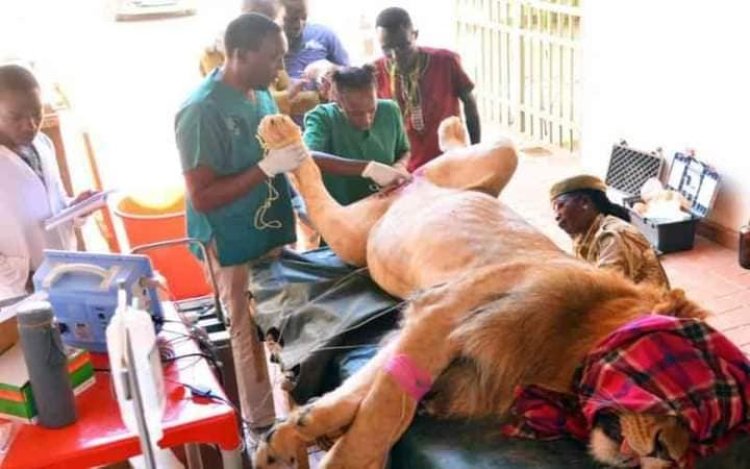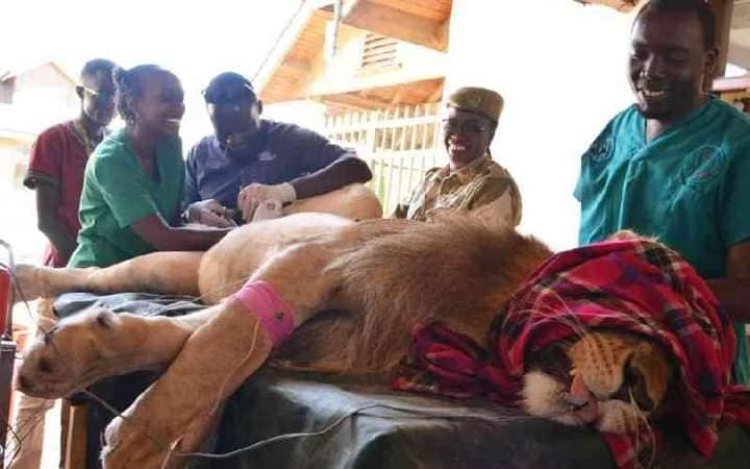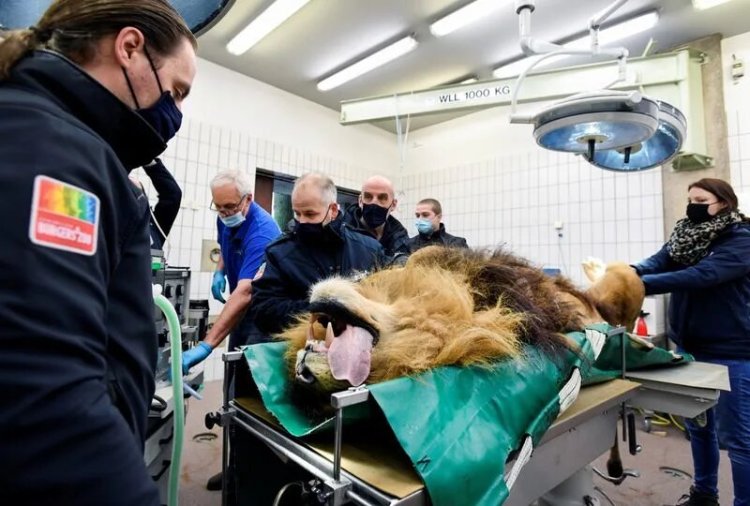Explainer: Why Lions Undergo Vasectomy
In Kenya, this procedure recently drew widespread condemnation given that the subject of vasectomy has been gathering momentum across the country.

A lion undergoing vasectomy is a practice considered special in veterinary medical facilities across the world.
However, in Kenya, this procedure recently drew widespread condemnation given that the subject of vasectomy has been gathering momentum across the country.
A three-year-old lion who was being nurtured and rehabilitated at the Stedmark underwent a vasectomy procedure at the Kenya Wildlife Service (KWS) Veterinary Laboratory on Friday, January 27 in an effort to control breeding at the captive facility.
One of the key activities undertaken by the Service through the Veterinary, Captive & Capture Services department in collaboration with the species programs is the rescue of animals in distress, orphans and injured wild animals. The animals are nurtured and rehabilitated in captive facilities.

Experts from Kenya Wildlife Service carry out a vasectomy on a lion. /FACEBOOK
"However, noting that when wild animals are hand-reared, they lose their natural instincts and if released back into the wild, they are vulnerable. The cat family end up being problem animals as they look for easier prey.
"As such, the wild animals kept in captive facilities are given the best conditions and utilised as exhibits to enhance local tourism, conservation education and awareness for schools and the general public," KWS explained in its press release on Saturday, January 28.
Breeding is not permissible in captive facilities and appropriate management interventions such as vasectomy are undertaken using the recommended best practice to ensure animal welfare is enhanced.
The main threats to lion conservation include human-wildlife conflict leading to injury and retaliatory killing, increased human settlement and infrastructure development in wildlife habitats leading to increased interaction between people and wildlife, habitat loss, fragmentation, declining wildlife populations which affect predator-prey dynamics, impacts of climate change occasioned by frequent and prolonged drought, diseases and lack of clear land use plans leading to poor conservation management strategies.
"The Service is currently implementing the National Recovery and Action Plan for Lion and Spotted Hyena in Kenya (2020-2030) with a goal to restore and maintain viable populations of lions, and their wild prey while minimizing conflict and maximizing value to local communities.
"Currently, the lion population is estimated at 2,589 in Kenya," added KWS.
In March 2021, a lion had a vasectomy in the Netherlands after his Dutch keepers decided he had sired enough cubs. Thor, 11, had fathered five cubs with two lionesses in the past year, according to the staff at Burgers' Zoo in Arnhem.
"Why are we doing it? Because he's a proven breeder. We have a lot of offspring and we don't want to have him overpopulating the genetic pool," Veterinarian Henk Luten explained, terming the experience as the first in his 35-year career at the zoo that he had carried out the procedure on a lion.
Staff said they had chosen to carry out a vasectomy, not a castration which could have caused Thor to lose his mane, along with his standing in the pride's social hierarchy.
In Chile in 2017, two baby lion cubs were presented to the public at a zoo, born after a pioneering veterinary procedure that involved a reversed vasectomy of their father.
The cubs' mother "Masai" became pregnant after the father "Maucho" underwent the procedure, which vets at Buin Zoo in the suburbs of Santiago said took months of planning and a five-hour operation.
"This is the first successful reversal of a lion vasectomy reported in the world. It gives a way of preserving and maintaining a species in a zoo," stated Marcelo Marconi, a urology specialist who joined the zoo vet team to lead the procedure.

Veterinarians carry out a vasectomy on a lion in the Netherlands in 2021. /REUTERS






